Father Of Mahsa Amini Rejects Regime Intimidation
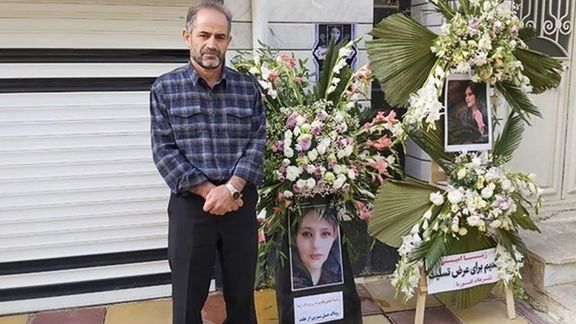
The father of Mahsa Amini continues to endure harassment from state security warning the family against holding events on the one-year anniversary of his daughter's death.

The father of Mahsa Amini continues to endure harassment from state security warning the family against holding events on the one-year anniversary of his daughter's death.
Amjad Amini has had multiple summons to the Intelligence Office in Saqqez over the past two days as regime forces brace for major protests marking the upcoming anniversary on September 16, the day Mahsa died in the hands of brutal morality police, following blows to the head.
In spite of the continued pressure, Mahsa’s father vowed to go ahead with commemorations at Mahsa's grave, which earlier this year was vandalized by what was believed to be regime affiliated thugs. "I have never accepted this, and we will hold the ceremony," he said.
Mahsa’s uncle was recently detained and transferred to an undisclosed location by security forces, with additional threats having been levied against Mahsa's brother, as the family is warned of legal repercussions for their mourning.
Adding to the climate of tension, numerous reports have emerged regarding the deployment of military armed forces to Kurdish cities across Iran. Human rights groups estimate that Saqqez, where Mahsa lived and was laid to rest, has seen the deployment of at least a thousand special forces, who are currently stationed within the city.
Mahsa’s death served as a catalyst for the formation of the Women, Life, Freedom movement and ignited nationwide protests, collectively known as the Iranian Uprising.
During the protests, the regime's armed forces resorted to brutal measures in an attempt to suppress dissent, resulting in the death of at least 570 citizens, including numerous children, as reported by human rights organizations.
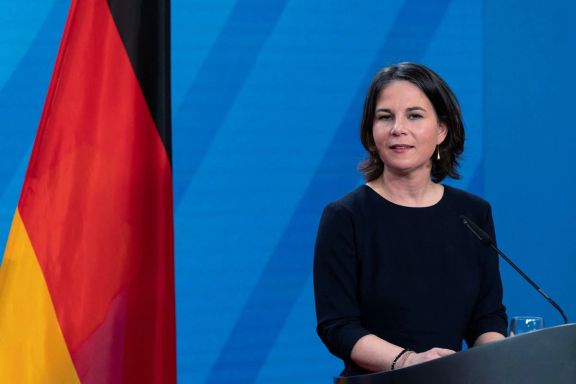
Germany's Foreign Minister Annalena Baerbock spoke with her Iranian counterpart Hossein Amirabdollahian about detained dual-nationals on Wednesday.
While officially, the Germany Foreign Ministry only said talks concerned "consular cases", it is believed they focused on the several German citizens currently incarcerated in Iran, including Nahid Taghavi, a dual German-Iranian citizen who was arrested in October 2020 and subsequently sentenced on charges related to "propaganda against the system."
Another high profile case is that of Jamshid Sharmahd, who has been sentenced to execution by the Iranian judicial system. Concerns loom large that this sentence may be carried out imminently.
Sharmahd was accused of leading the pro-monarchist group Kingdom Assembly of Iran, which has been linked to a fatal bombing incident in 2008 and alleged plots for additional attacks within Iran. Sharmahd has denied the accusations.
Diplomatic relations between Iran and Germany remain marked by tension. Foreign Minister Baerbock consistently voicing her concern over the violent suppression of protests in Iran. Meanwhile, the Iranian government has accused both her and the German government of interference in Iran's internal affairs.
It is the first direct exchange between the two countries' foreign ministers since the Munich Security Conference last year.
Iran's diplomatic hostage taking policy has been at the top of the headlines in recent weeks after $6bn of frozen Iranian funds in South Korea is being released in exchange for five US-Iranians, and in return, five Iranians held in the US.
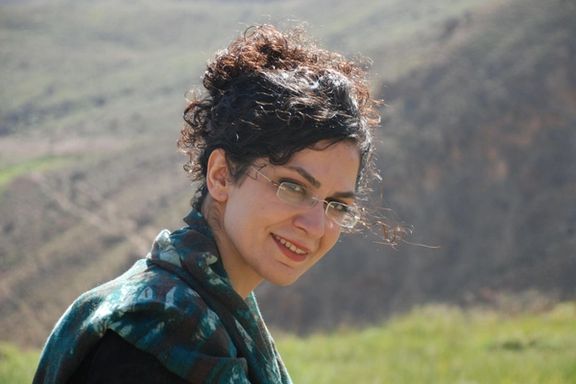
In a letter, Hedayat said, "In honor of all those seeking justice, especially the mothers of the victims, I am ending my hunger strike."
The decision to end her hunger strike - which began in February - coincides with the one year anniversary of the death of Mahsa Amini in morality police custody.
She vowed to continue the fight for justice: "I end my hunger strike, but I will not break my commitment, a commitment to myself and to you, the suffering people of my homeland, until the day the footprint of the Islamic Republic, this anti-freedom regime, is erased from the soil of Iran."
Hedayat's journey as a political prisoner dates back to her sentencing in connection to the protests that erupted following the tragic downing of a Ukrainian passenger plane by the Revolutionary Guards in January 2020. Her sentence amounted to four years and eight months of imprisonment.
In October of the same year, she was apprehended by security forces at the residence of a friend, subsequently being transferred to the women's ward of Evin Prison in November for the execution of her sentence.
However, her ordeal did not end there, as the authorities opened a new case against her in mid-November last year. The new case brought forth several additional charges, including "anti-system propaganda, collusion, and the promotion of corruption."

Images showing exiled Iranian chess grandmasters competing against one another has sparked strong reactions in the Persian-speaking online community as top players continue to flee the regime.
Atousa Pourkashiyan's game against fellow exiled Iranian Mitra Hejazipour at the FIDE World Women's Team Championship 2023 in Bydgoszcz, Poland, was a sad day for Iranians who see the game's best competing for different countries.
Last year, Pourkashiyan was among the several female athletes across Iranian sport, who over recent years have chosen to shun the hijab on the world stage. The seven time Iranian women's champion, now competing for the US, played against Hejazipour Wednesday, who now represents France. She was expelled from the national team back in 2020 for refusal to wear the hijab.
Hejazipour, now known as the French chess queen, said: "While playing against Atousa, I wondered what has led us to a point where we are not even members of the same continent today?"
Also at the match was Sara Khadem al-Sharieh, who emigrated to Spain following a controversial game last year in which she competed for Iran without her headscarf, knowing she and her family could never return home after the bold statement in support of the protests in the wake of Mahsa Amini's murder in morality police custody.
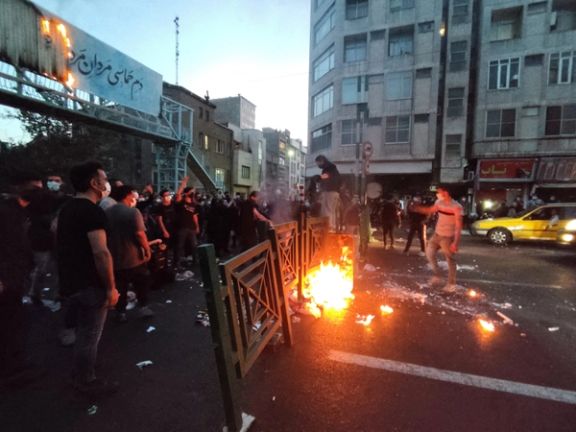
Amnesty International has urged the international community to combat impunity for the brutal crackdown of Iranian protesters by the Islamic Republic.
In a statement released on the occasion of the first death anniversary of Mahsa Amini that catalyzed a revolt later known as the Women, Life, Freedom movement, the human rights organization said the world must pursue pathways for justice at the international level to address systemic impunity for Iranian officials responsible for hundreds of unlawful killings of protesters and widespread torture.
Exacerbated by years of economic and social suffocation and subjugation under the rule of a corrupt autocratic regime, people took to streets across Iran last September. The uprising was dealt with by a bloody crackdown by police and Revolutionary Guard’s agents leaving about 600 protesters dead and tens of thousands detained.
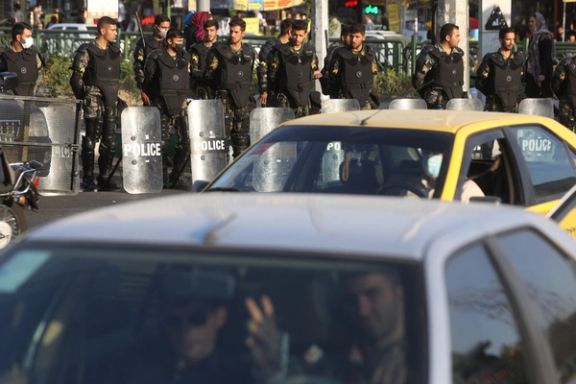
Amnesty pointed out that Iranian authorities have committed a litany of crimes under international law to eradicate any challenge to their iron grip on power over the past year. “These include hundreds of unlawful killings; the arbitrary execution of seven protesters; tens of thousands of arbitrary arrests; widespread torture, including rape of detainees; widespread harassment of victims’ families who call for truth and justice; and reprisals against women and girls who defy discriminatory compulsory veiling laws.”
The group’s Deputy Regional Director for the Middle East and North Africa, Diana Eltahawy, slammed the regime’s authorities for “inflicting unspeakable cruelty on people in Iran for courageously challenging decades of repression and inequality,” noting that “not one official has been criminally investigated, let alone prosecuted and punished for crimes committed during, and in the aftermath of, the uprising.”
She also described the anniversary of the ‘Woman Life Freedom’ protests as “a stark reminder for countries around the world of the need to initiate criminal investigations into the heinous crimes committed by the Iranian authorities under universal jurisdiction.”
Eltahawy also called on the world's leaders to issue statements explicitly calling on Tehran to halt the use of firearms against protesters, stop torturing detainees, and release all detained protesters. “These actions show victims they are not alone in their darkest hour.”
Amnesty decried the regime's raft of new measures against women and girls who defy compulsory hijab, including the confiscation of cars and denial of access to employment, education, healthcare, banking services and public transport as well as finesand degrading punishments, such as washing corpses.
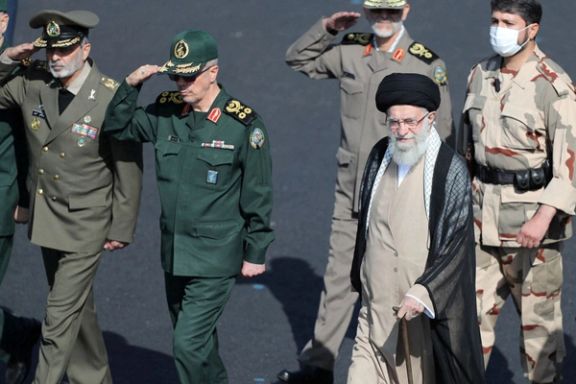
“This assault on women’s rights is taking place amid a spate of hateful official statements referring to unveiling as a 'virus', 'social illness' or 'disorder' as well as equating the choice to appear without a headscarf to 'sexual depravity,’” the right group added.
Amnesty also raised alarm about the detention and summoning of human rights defenders and journalists, saying that “at least 90 journalists and other media workers and 60 lawyers, including those representing families of individuals unlawfully killed,” have been arrested. Scores of other lawyers were summoned for interrogations.
Describing it as “a tsunami of torture,” Amnesty said that to quash the protests security forces fired live ammunition and metal pellets, causing injuries amounting to torture or other ill-treatment to thousands, including blinding, loss of limbs and impaired mobility. “The authorities also oversaw the widespread commission of torture and other ill-treatment against thousands of detained protesters, including children.”
Amnesty International called the establishment of a Fact-Finding Mission on Iran by the UN Human Rights Council in November 2022 as a good measure but insisted that much more is needed “to deter further cycles of bloodshed.”
During the past several days, the international community has stepped up condemnation of Iran’s crackdown on dissent as Iranians are getting ready for more protests on the anniversary of the uprising, but none has so far resulted in tangible results for the people.
The US overwhelmingly passed the MAHSA Act on Tuesday to strengthen Washington’s sanctions on the regime over violation of human rights. Also on Tuesday, members of the European Parliament grilled EU’s foreign policy chief Josep Borrell over the bloc’s Iran policy.
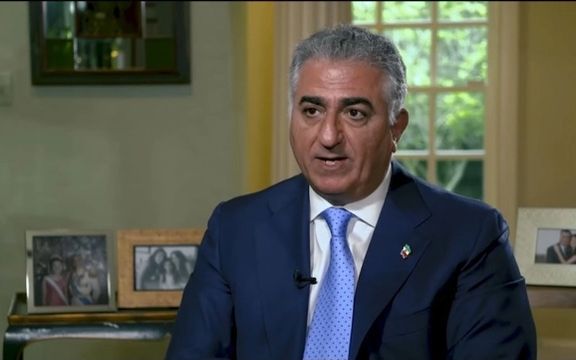
Iranian exiled Prince Reza Pahlavi has renewed his criticism of the recently revealed prisoner exchange deal between Tehran and Washington.
He denounced it as a $6 billion “ransom payment” to the Islamic Republic for the release of five dual-national hostages. "As I have said before, I strongly oppose sending money to the Islamic Republic, especially while this regime, as is its very nature, is engaged in repression at home and terror abroad," Pahlavi posted on X.
He underscored the timing of this deal, suggesting it was intended to undermine the spirit of Mahsa Day when Iranians both inside and outside the country are preparing for protests. According to the exiled prince, the transaction serves to "sap the hope of Iran's freedom fighters and to empower the repressive Islamic Republic." He added, "It is also a gift to this regime and the criminal Ebrahim Raisi as he travels to New York."
Pahlavi issued a warning to the current American administration, cautioning that the Iranian people will not forget those who turned their backs on them during their most challenging moments and instead stood by their oppressors.
He concluded his statement with a message of resilience to the Iranian population, urging them to continue the struggle: "My compatriots, feed the flame of hope in your hearts. The Islamic Republic is going to fall because you, the great nation of Iran, are standing against it."
The reported deal comes amid speculation that $6 billion of unfrozen Iranian funds will be transferred from South Korea to banks in Qatar, triggering a process that could lead to the release of detained dual-national hostages on both sides.






